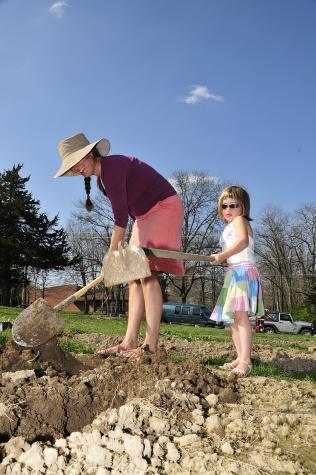COLUMBIA, Mo. – With rising prices eating away at family budgets, vegetable gardens are growing in popularity, says a University of Missouri Extension horticulturist.
“Vegetable gardening is an excellent way to save on the family food bill,” said David Trinklein.
Seed companies, greenhouse operators and other retailers report a 10-15 percent increase in garden-related purchasing, he said.
You don’t have to start gardening alone. In many areas, there are neighborhood or community gardens where families share in expenses and labor, said Bill McKelvey, an extension associate with the MU Healthy Lifestyle Initiative.
McKelvey said that extension specialists in the field are seeing a surge of interest in neighborhood and community gardening, reflecting the growing appeal of fresh, locally produced and inexpensive food.
“I think it’s a great way to get started, especially since there are other people who are gardening alongside you,” he said. “In community gardening, you can save money by sharing tools, equipment, compost, mulch and seeds.”
According to Trinklein, as little as $50 invested in seeds and gardening supplies can yield as much as $1,200 in vegetables.
“If we are fairly good gardeners, we might be able to achieve 10 to 15 pounds of tomatoes per plant, and that’s a lot more than many people realize a tomato is capable of producing,” he said.
Gardening also brings health benefits, McKelvey said. “People who are involved in gardening, who are exposed to nature, actually have better mental health. So there are physical health benefits, mental health benefits and nutritional benefits that all go along with gardening.”
MU Extension has published a new Community Gardening Toolkit, a 24-page guide to planning, enhancing and sustaining community gardening projects. The guide includes information on organizing participants, identifying local resources, selecting garden sites, drafting leases and making budgets.
Copies of the Community Gardening Toolkit are available for purchase or free download.
MU Extension publications on a number of gardening-related topics are available at Horticulture and gardening.
To find a community garden near you, visit the American Community Gardening Association.
###
